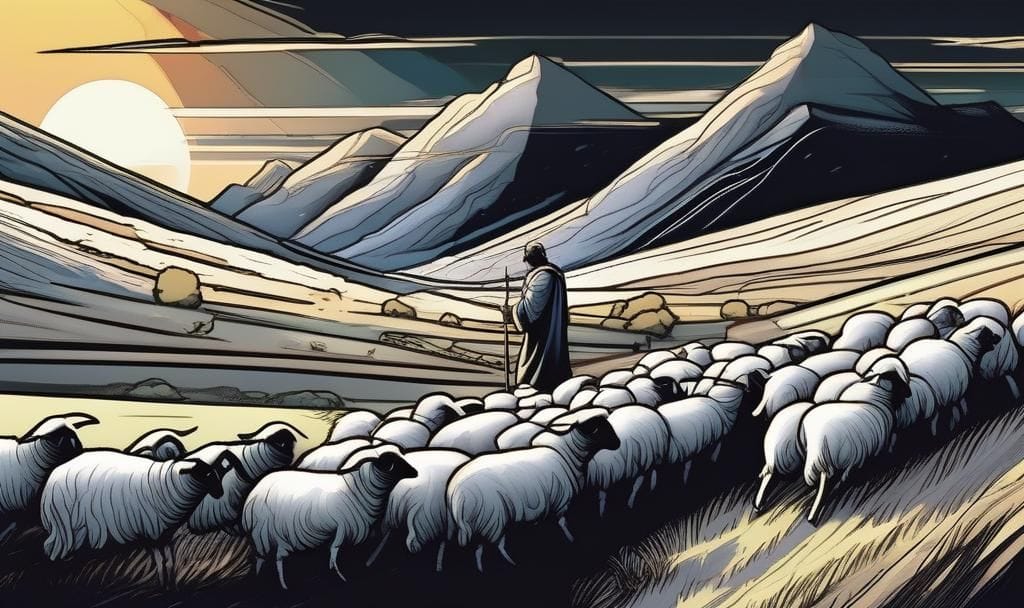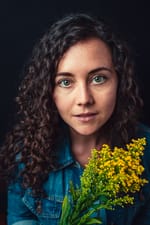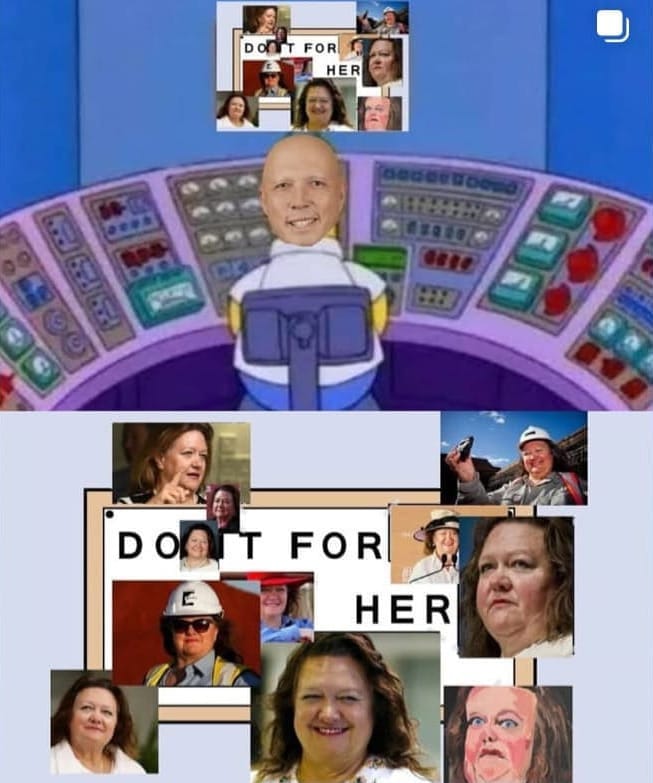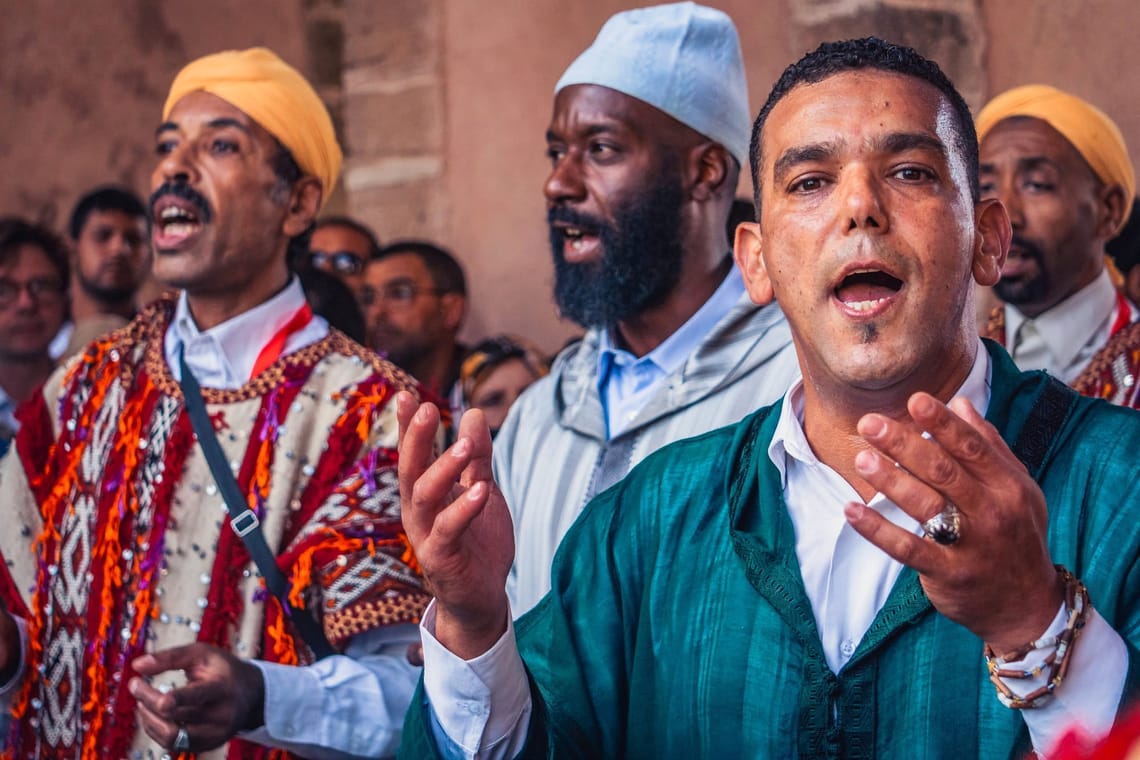If you missed my introduction that lays out why you might want to sit through all of this and where we’re headed, feel free to catch up here. Navigate past and future chapters via the Table of Contents. Note that I will pepper my prose with occasional subscribe or comment buttons — I want reader input! So I invite you to stick around and journey with me; share some tea and stories. Thank you for being here.
“I often think a beautiful question is defined by the fact that it helps to shape your life as much by asking it, as by having it answered...You can get an immediate reward, but actually you can carry a question for years, that you suddenly realise is now being answered in a completely surprising way.”
– David Whyte
Almost two years ago from the time of writing this, I was sitting beneath a palm tree on a North Queensland beach with a book in my hands, crying tears of wonder and joy upon having finished the final pages.
The book was about a boy and an unlikely sage that leads the protagonist on his way to buried treasure. From what I have heard anecdotally — and in a most delightfully meta way — the book itself serves as its readers’ own unlikely sage that propels many on their own spiritual pilgrimages. My own copy — with its lovingly worn, ornate vermilion red and sun-yellow cover, like a cross between an old map and a mandala tapestry, and a lead pencil inscription in Hebrew on the back cover — was the hard-won, yet unexpected treasure at the end of a spiritual pilgrimage I did not quite realise I was taking, and the punchline of a long drawn-out cosmic prank.
The story of which I will tell you now; because not only did receiving this book as a parting gift from a beautiful encounter close a chapter on one of the greatest lessons of my life, but — unbeknownst to me at the time — also served as both the foundational allegory of this book.
It’s a lengthy and necessary prologue (with a hint of woo-woo), and I hope you will stick with it. As the protagonist learns in this gifted tale: should he proceed with enthusiasm, patience, and trust, he will unearth great value from deceptively simple guidance contained within unassuming chests of stories and symbols. There are many layers to be unfurled over a long journey, with treasures tucked beneath every single one. You may, at times, feel parched waiting for the payoff — and I implore you keep putting one foot in front of the other. Sometimes we are called to cross a desert to reach an oasis.
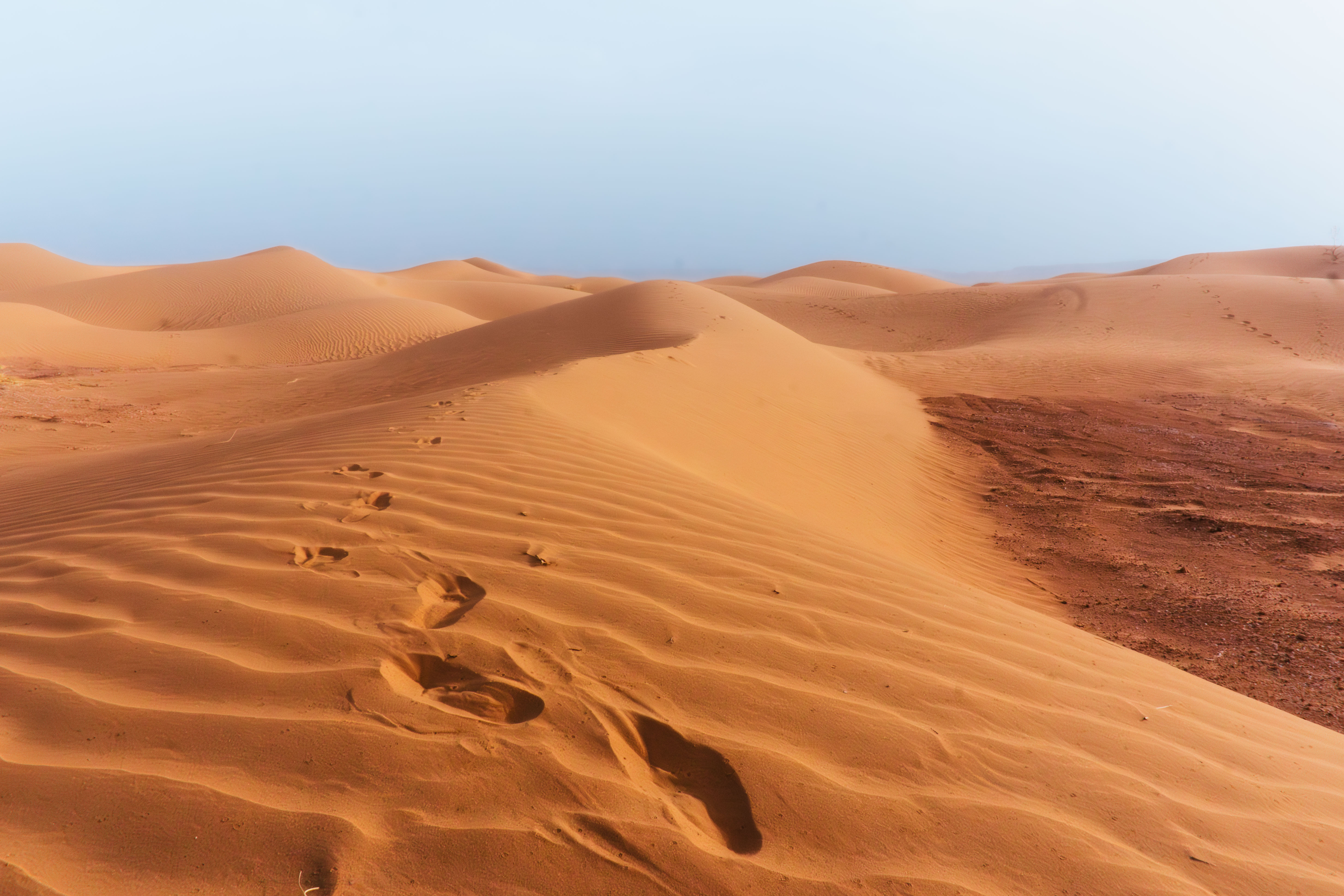
Years ago, my dad — in rare settings, a spiritual being a few steps ahead of his hardheaded intellect and stubbornly pragmatic, backwater farm life upbringing — read and became inspired by the aforementioned book that similarly captivated the imaginations of mystical seekers across the world.
For those who have not read it yet: in keeping with how it found its way to me and everyone I’ve spoken to about it, I encourage you not to go out of your way to find it; simply trust it will find its way to you when its teachings will land most potently in your life. For now, I will provide the barest of context and plot details (though it would be impossible to tell this story without, at least in part, giving away the ending — so prepare yourself for partial spoilers).
The Alchemist, written by Brazilian author Paulo Coelho, became a widely translated and prolific bestseller following a perceived failure; its initial run with a small publishing house ended after only one year when the book did not sell as well as intended, and Coelho was handed back the rights. Like all the best failures do, this one motivated him to take the matter of the story’s distribution into his own hands; quite literally. He knocked on doors until his treasured allegory for life — which took only two weeks to write, as it was already “written in [his] soul” — sold 35-million copies and became the most translated book by any living author.
Quite the phenomenon, and understandably so. The lessons contained within The Alchemist are not merely carbon ink on pages to be skimmed half-heartedly and barely remembered. Rather, they are living entities that come knocking on your door when you are ready to receive them...and, paradoxically, often arrive as unexpected house guests. They are a bit like delivery guys: wait around at the appointed time, they won’t turn up. However, when you finally lose hope and busy yourself with other tasks, that is when they come to call with your precious package.
A quick plot summary.
The main character is named Santiago (though more often referred to as “the boy”), a humble shepherd in the Andalusian Mountains. He is troubled by the notion that there is a greater world out there he is not experiencing; a kind of treasure he does not have. A recurring dream leads him to consult a gypsy fortune teller, who prophecises he will discover the treasure he seeks at the Egyptian Pyramids, and asks for a tenth of his bounty as payment for confirming the meaning behind his dream. The boy, sceptical, nevertheless sets out in the direction of Egypt — having acquired money to do so through selling his sheep to an unlikely buyer — encountering people and forces who help and hinder him along his way. He eventually finds himself deep in an oasis in the desert, and deeply in love with a woman within its walls...and, at last, encounters the alchemist to which the book infers.
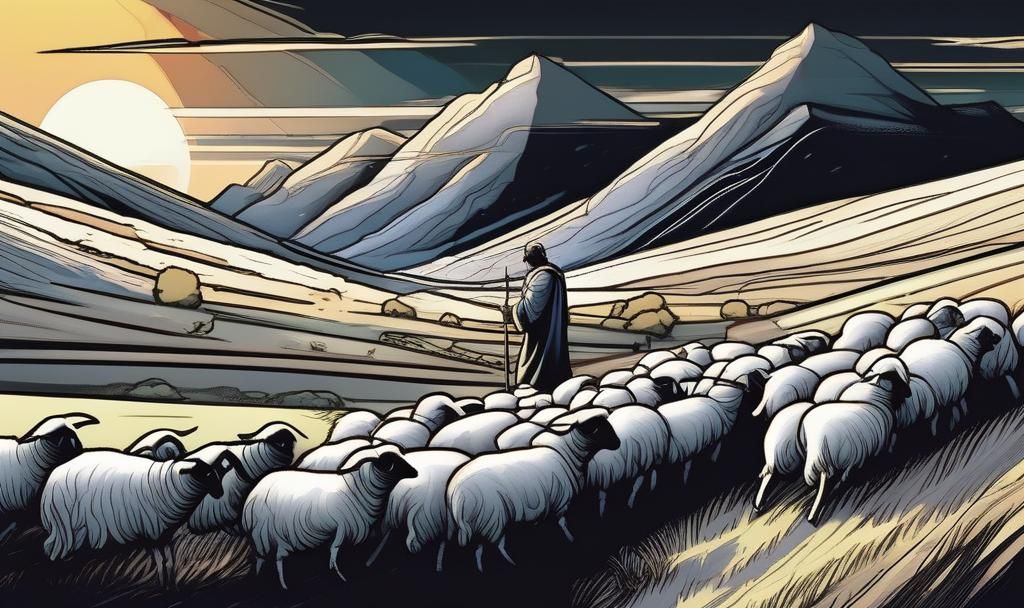
The details of the book’s ending are delectably sweeter than an oasis palm date, so I will save them for later. Suffice to say for now, The Alchemist — what I would eventually come to experience as a parable truer to life’s mysterious, generous, and uncanny nature than many a non-fictional account I have heard or read — touched the heart of my dear dad, who then implored I read the book myself.
Though with one caveat:
“You can’t go looking for The Alchemist. The Alchemist needs to find you.”
And so refrained from lending me his copy. The self-satisfied and wisecracking smirk I have come to know so well dashed across his face as he handed down the mission; an assignment that, I was entirely unaware, would take close to ten years to see through to completion.
A few years after that, I trawled some open-air markets in Essaouira, Morocco — a port city with palm tree- and busker-lined promenades, plenty of seagulls, seafood restaurants with a reputation for making even the most iron-stomached of travellers very sick, and kitschy tourist art spilling out of storefronts that sly male shopkeepers would practically drag you in by any stray limb to buy.
Feeling energetic after my usual hearty breakfast of b’sara 1 with stretchy, chewy, oily, roti-like bread, I wove in and out of rows of pop-up stalls in the spacious courtyard outside the city walls, and eventually locked eyes on a table laden with bootleg books. Among them, a garish-looking cover implied the story of The Alchemist lay between its folds.
At first, I flinched at the print quality. I don’t remember much about what the cover looked like, though the words “Rorschach inkblot test” come to mind when I try. I held the book in my hand, dubious, like it might suddenly start smoking from the corners. An unlikely package of treasure (and quite possibly a booby trap).
The age-old adage about not judging a book by its cover flashed into my conscience, followed by the memory of my dad’s wise words drifting back to me. I figured (with some hair-splitting hesitation):
I have travelled to Morocco through the most serendipitous series of circumstances I could have imagined, and wandered past this stall on a whim. I have found the story, the story has found me — what’s the difference, really? Then handed over some dirhams that sealed the outcome of the mission.
Or so I thought.
Over the following days, I hungrily ravaged pages during numerous cross-country bus rides, as Santiago travelled between continents in pursuit of his treasure; found love and spiritual teachers along the way, evaded death and war, extreme thirst and poverty, became chief of an oasis, waited for months and crossed great expanses of desert before finally reaching the foot of the Pyramids, where he was literally digging in the sand by moonlight to uncover what he came all this way for...
When the story stopped. Mid-sentence.
I sat bewildered for a few moments, mentally rocked as I was physically on those bone-rattling Moroccan buses. I turned the book over a few times, flipping it back and forth as though expecting hidden pages would suddenly tumble out. I let a half-uttered curse of What the fff... escape my lips, before closing them. Both annoyed and amused, I realised what had happened. (I firmly believe in life’s capacity to make eternal and exasperated students of us all, so surely there had to be some kind of teaching embedded in such a ridiculous and unlikely occurrence.)
Rather than the bootleg book cheating me out of knowing The Alchemist’s ending, I had cheated myself out of it; the pointy end of all the book’s culminated wisdom contained within. It seemed I had forced fate’s hand by seizing a copy of the book I sensed, however slightly, was not the right one for me. By letting impatient curiosity get the better of me before allowing the subtleties of the Universe to guide me in their own damn time, I robbed myself of my right to know the answers. I clearly was not ready to know.
(Or, as my pitiable ego may have convinced me at the time: I was not a worthy recipient of a spiritual teaching many thousands and millions of others have been granted before me. I don’t get this kind of thing, I probably told myself. I made a mistake somehow. I might as well give up.)
With a sigh of the soul, I retired that illicit copy of Paulo Coelho’s secretive genius to a hostel bookshelf somewhere, and put the mission out of my mind.
If I only vaguely knew the salve that lay within those final pages — the delightful brilliance waiting for me on the other side of patience and trusting in a more divine plan than I could ever clumsily construct — I might have breathed a little easier over the better part of a decade. Laughed a little more in anticipation of the most loving sucker-punchline delivering itself to me across legions of unfathomable time and space; a cosmic blow that proved, to paraphrase Elizabeth Gilbert 2, “both surprising and inevitable...rearranging my DNA in a certain way where I can’t be the same now.”

Trust me: it hits hard. It’s worth the wait. For now, there is a bit more explaining to do.
Years later again (mid-2022), I received a spontaneous proposition. Seemingly a once-in-a-lifetime opportunity:
Would I accompany some friends — who were something of spiritual and social entrepreneurs with an ambitious dream to disrupt the socioeconomic framework — on an all-expenses-paid documentary filmmaking journey around the country in a converted bus?
I stared at the little pop-up chat on my Facebook, stunned. Their pitch ticked many boxes of a long-held career aspiration I had been nurturing. I wanted so badly to create my own travel documentary series — in the style of Ewan MacGregor and Charley Boorman’s Long Way Round/Down, a show I have adored since my late teen years — that I envisioned this aspiration unfolding before me as though it were already happening. Its possibilities, its prestige, its profundity, its potential for my name up in lights in a theatre somewhere. My eyes glistened at the prospect, and my heart pounded out of my chest as I blurted out enthusiasm to be a part of the project without giving the practicalities too much thought.
The aim of the documentary was to flesh out, in lived experience, a concept the visionary behind the trip had been percolating for a while: a decentralised system of social governance and credit that was founded (and funded) on expressions of gratitude. If that looks confusing at first glance, it’s because it was. Highly cerebral as it was experimental, I quite honestly never really caught on — though the project leader expounded the details with such whole-hearted confidence and intention (and I am so determined to see a shakeup to the current economic model in my lifetime) that I rolled with it.
What truly excited me was our anticipated itinerary. It was huge, encompassing half of the country, and would connect our crew with many people and places of artistic, cultural, environmental, and spiritual significance. It was (practically) a paid opportunity to learn what I intended to spend the rest of my professional life doing anyway — an in-the-field internship that would prime me for more prolific documentary photography and filmmaking, hashing it all out in the company of well-intended friends.
More than that, I was beyond thrilled to reincarnate into “truck life” once more: simplistic, free, nomadic existence comprised mainly of building fires, downing local beers, staring wistfully out of windows at wildlife, and sleeping beneath stars — as I experienced it while working and traversing East Africa when I was 24. And to finally have a productive reason to leave Brisbane — a perfectly mediocre city that has always felt like my personal saṃsāra 3 — in a cloud of Red Centre-bound dust.
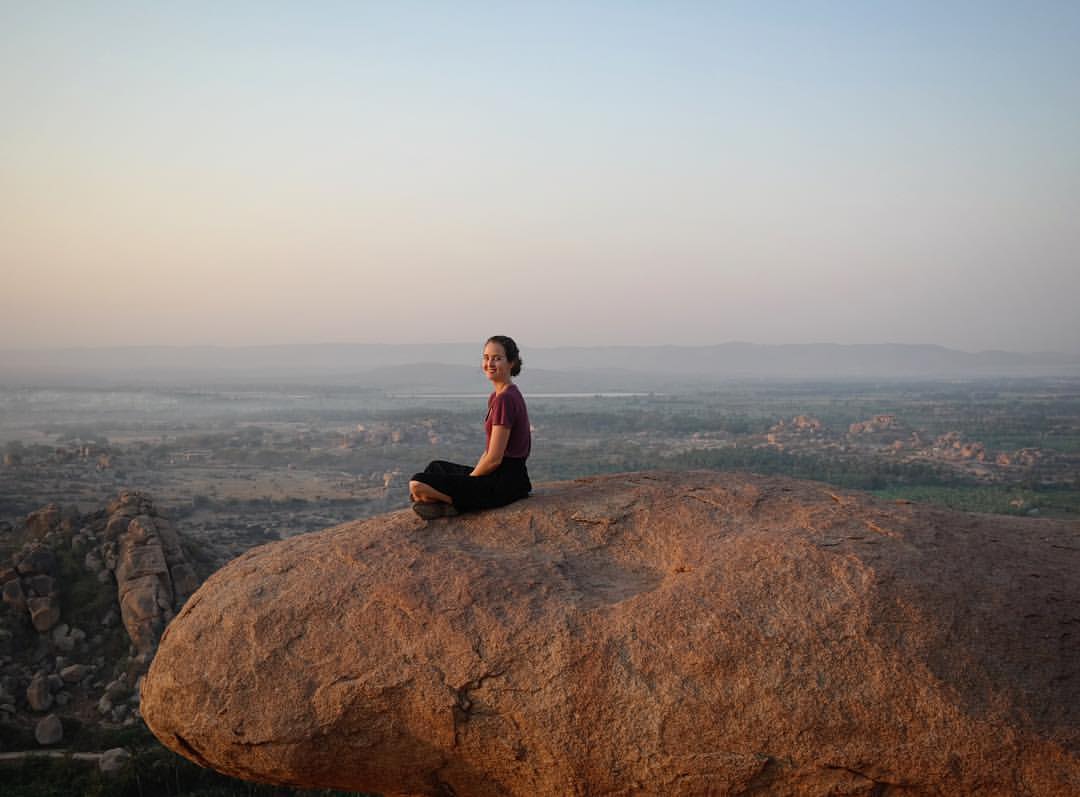
I saw myself sitting atop the roof of the bus with such clarity. Beer in hand whilst sunsets bloomed over the desert 4. Toasting synchronicity and the universe’s generous net of nourishment and support. Silently thanking everyone and everything that had bounced off each other in this cosmic pinball machine to nudge me, moment by moment, into this climactic experience where everything in my life was finally fitting together and making sense.
As far as I saw it, this was my dream — my destiny even — becoming real. That “certainty” saw me halve my savings to buy new camera equipment for the job, turn down work prospects in my own creative business I had doggedly cultivated over two years, and hastily utter goodbyes-for-now in the weeks leading up to our departure date, not knowing exactly when I would return.
TBC.
Moroccan fava bean soup — my favourite dish while I was in the country. ↩
In conversation with Tim Ferriss: “Elizabeth Gilbert’s Creative Life: Saying No, Trusting Your Intuition, Index Cards, Integrity Checks, Grief, Awe, and Much More (#430).” ↩
Wilson, Jeff (2010), Saṃsāra and Rebirth, in Buddhism, Oxford University Press: the “suffering-laden, continuous cycle of life, death, and rebirth, without beginning or end.” ↩
Or, y’know...a joint in hand whilst gazing up at a crystal canopy of stars. ↩
